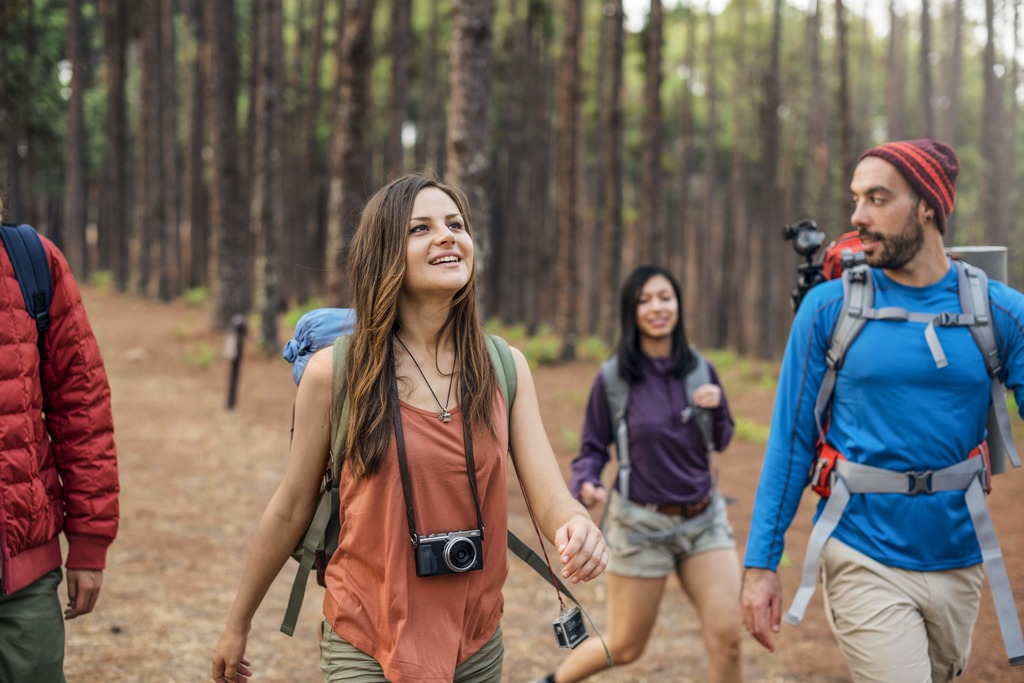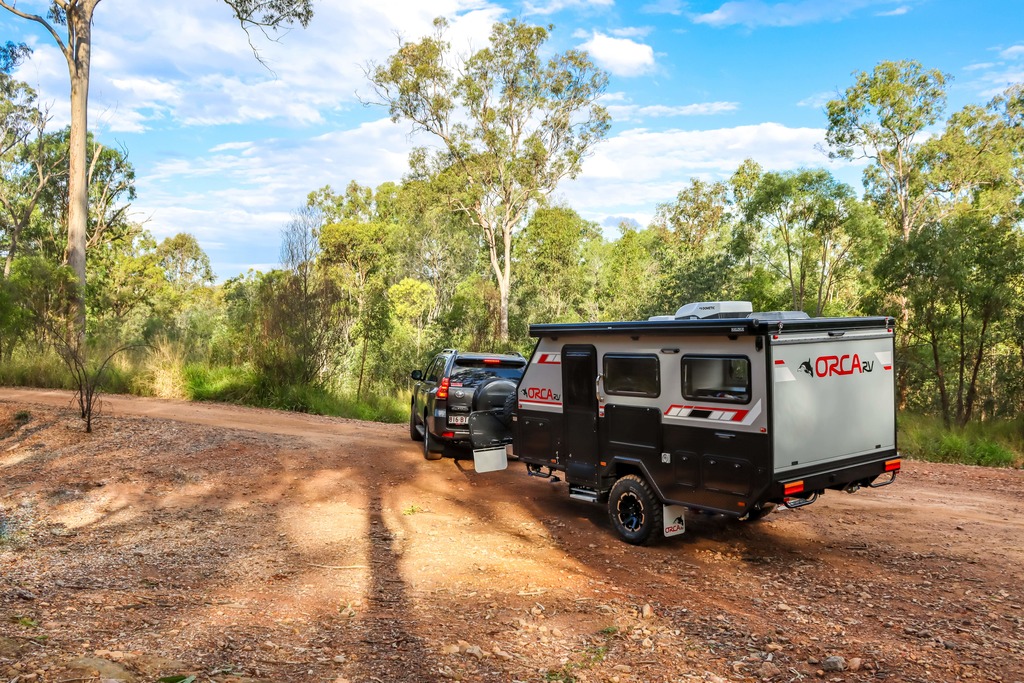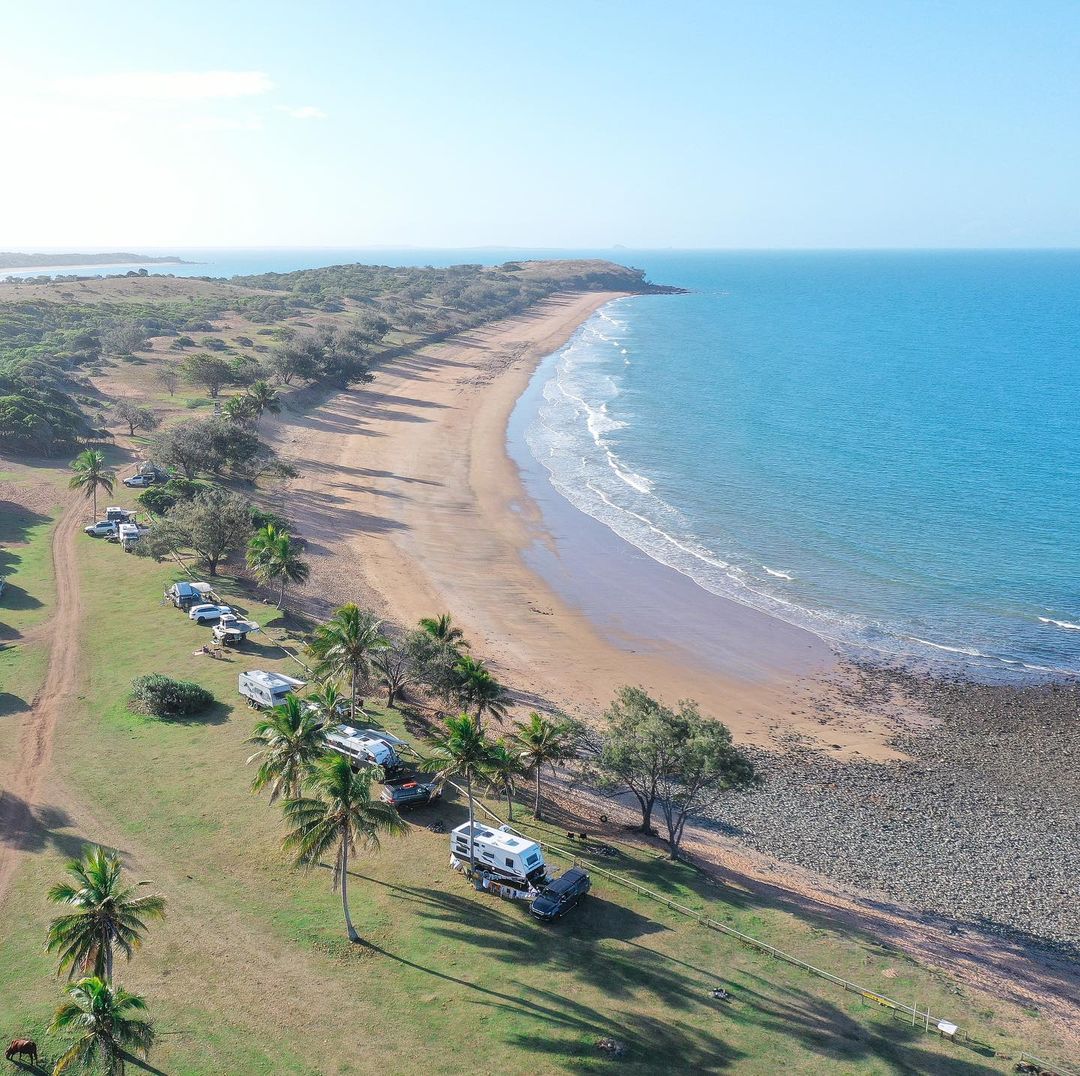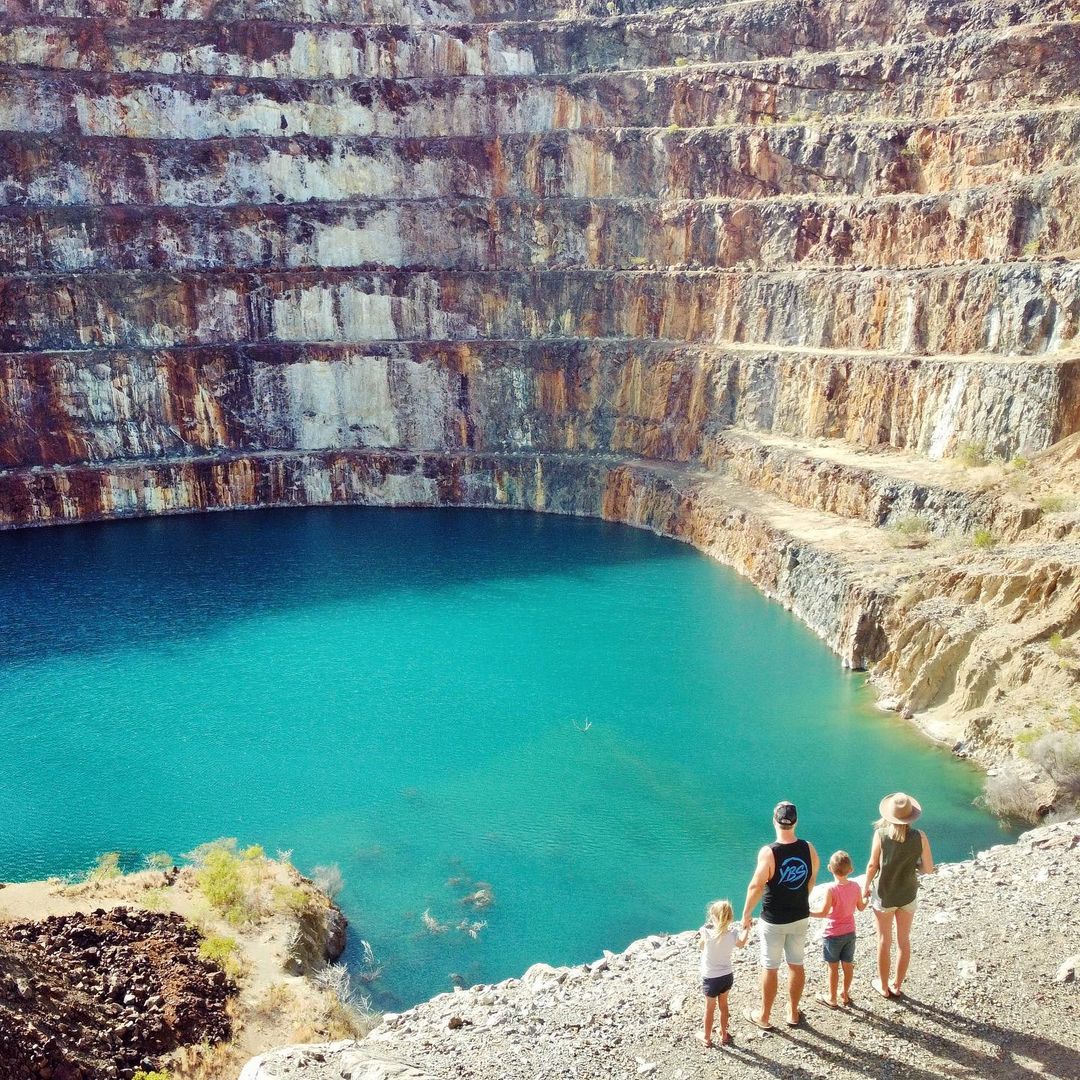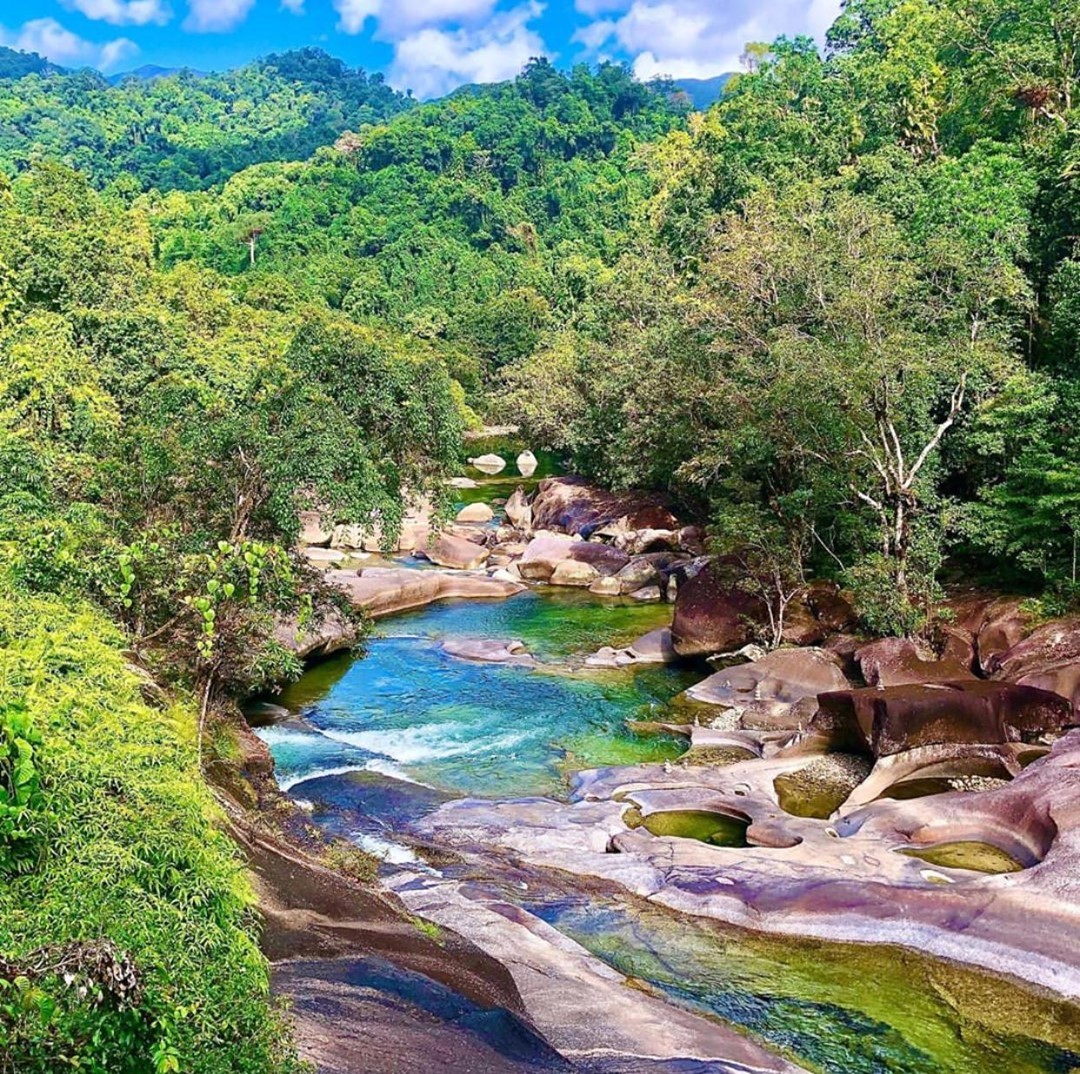In Australia, we’re so blessed to live in a country that’s surrounded by stunning nature and wildlife. Best of all, with such a small population compared to our sheer land size, there’s plenty of free camping opportunities to be explored! That’s why Free Camping is becoming quite popular now more than ever. If you’re new to the world of free camping, or are looking at ways to SAVE BIG on your lap around Queensland or Australia, keep reading on!
What is free camping?
Free Camping or Freedom Camping is when you camp on public land that isn’t a recognised camping ground or holiday park. This means that you won’t need to pay for site/camp fees, have no access to powered sites, no bathroom facilities and very little access to the Internet. It’s the perfect opportunity to go off the grid and enjoy a budget-friendly adventure.
In order to free camp, you will need your own vehicle - we recommend a self-contained certified camper with sufficient water storage, gas, a solar power generator and toilet. Our
ORCA 13 and
ORCA 15 hybrid caravans are all decked out with the essentials so you won’t need to limit yourself on where you would like to camp.
Types of free camping
There are 2 types of free camping available and when done right, you can spend little to nothing on accommodation.
Roadside Rest Areas
In Queensland, general and recreational vehicles can stop at a rest area for up to 20 hours unless signed otherwise. These rest areas are not a camping ground and are provided to help manage your fatigue. If you’re planning a long trip, take advantage of these rest areas to stay the night, or to stretch your legs. Be mindful not to park in heavy vehicle rest areas with your car or van unless you want to get woken up by angry truck drivers.
If you’re making a long commute, we would recommend mapping out all the roadside rest areas in advance to stay overnight. In the morning you can take advantage of rising early and hitting the highway before pulling over into another roadside stop before reaching your destination. You can find the roadside rest areas using the
QLDTraffic website or from the
app store.
State Forest and Reserves
Beyond the highways and motorways you’ll be in what we call ‘bush territory’ or ‘off the grid’. There are many public forests and reserves in QLD that are open for camping and other recreational activities like motorbike riding, horse riding, 4WD and hiking. While some require a small fee, most are free which also allow dogs if you decide to bring your fur baby.
Where to find free camping locations
The key for a successful free camping experience is to have a rough idea on where you’re going and
Camps Australia Wide has been our go-to. All the sites listed are verified and site information is updated daily. From addresses, directions and photos to GPS coordinates, fees, amenities plus more. It’s available in a paperback version and available on the app store. You can take advantage of a free 7-day trial, and if you love it, you can pay an annual fee of $9.99 AUD.
Another popular app is
Wikicamps, where all the sites are crowd-sourced which means that users of the app add all the sites and information as opposed to Camps Australia Wide that’s managed by a company. With a one-off payment of $7.99, and very similar features to Camps Australia Wide, we find that besides the different price point, they are on par in terms of the features.
Shared features for both apps include:
- Online and offline maps
- Community reviews and photos
- Pet friendly stays
- Public dump points
- Petrol station locations
- Gas bottle refill points
- Trip Planner
- And much, much more
What to bring
Once you’ve got a good idea on where you’re going, it’s time to start creating a list of things to pack. It’s important to not overpack as you might be adding unnecessary clutter to your campervan. The biggest and the most important thing to keep in mind is respecting the land and to LEAVE NO TRACE.
Here’s our standard checklist that also includes a little comfort, but feel free to change it up to suit your needs:
- Full water tanks
- Drinking water
- Solar panels and inverter
- Food supplies - depending on the duration of your trip, try to reduce the amount of perishable food
- Portable toilet or shovel
- Generator (for backup)
- Phone chargers
- GPS holders
- Comfortable camping chair
- Foldable tables
- Books or kindle - some sites offer book swaps!
- Flooring - rubber matting or shade cloth
- Rubbish bags
- Fuel caddy for extra fuel/gas
- Gas butane cooker
- Insect repellent - mosquito coils, bug spray
- Torch - with spare battery
- Camera
- Ice
- Towels
- Washing line to dry your clothes
- Fan
- Ziplock bags
- Paper towels
- Body wipes
- Comfy mattress
- Linen and pillows
- Sun protection - hat, sunscreen, sun glasses
- Entertainment - cards, fishing gear, hiking gear, beach gear
- Cooking equipment
- Cutlery and plates
- First aid kit
As previously mentioned, you will find that our
ORCA 13 and
ORCA 15 hybrid caravans come fitted with many of the above comforts!
Top tips
- Stock up food at a supermarket instead of at a petrol station to save money
- Stop, revive and survive every 2-3 hours
- Have your passenger help you check your blind spot
- Look for cheap petrol before you commit to filling up the tank
- Always carry extra drinking water
- Before you head off, check your tyre pressure, and that your gas and water tanks are full. This applies to not only your campervan but also the vehicle you are towing it with (if applicable)
- Check the weather in advance and make sure that you pack clothes and entertainment in case it's wet weather
- If anything is battery powered, always have spare batteries
- If you’re renting a van remember to take photos of everything - inside and outside of the van. Record the owner as they run through each component of the van (shower, generator, how to fill a water tank)
- Before you head off, ensure that everything is working properly and there are no leaks
- Check the condition of the vehicle every 500km
- If you’re an inexperienced hiker, make sure to follow hiking trails
- If you light a campfire, ensure to put it out before you leave as it may cause bushfires. Always check for alerts to avoid fines.
Our favourite spots
Yarrawonga Park - Notch Point
Located between Mackay and Rockhampton, Notch Point is one of our favourite camping spots in Queensland. This magical piece of paradise is located on the beachfront where cattle freely roam throughout the camping ground. To get access to this park, there is a dirt road where 4WD is recommended. One thing you must pack is insect repellent as there are midges and they can leave burning bites on your skin.
Mary Kathleen Town - Cloncurry
What was once a uranium mining settlement in the late 90’s, is now an abandoned ghost town. The buildings that once stood here are now concrete slabs that make for a very comfortable site to set up your camping equipment. You can also read more about the town's history on signs that are still erected, some that contain photos of what it used to look like.
If you’ve got a 4WD, you can explore the rugged push that surrounds the mine instead of travelling on the dirt road. We highly recommend stopping by the Little Blue Lake, an open cut mine filled with water. Visit during the afternoon golden hour and you’ll witness the stark contrast of the dirt against the electric blue water! But beware, you can’t swim in this water due to all the metals and salts that have accumulated there over the years. Definitely worth stopping to take a photo or two!
Babinda Boulders - Cairns
Surrounded by lush, tropical rainforest hides one of North Queensland’s best kept tourism spots, the famous Babinda Boulders. It sits on the base of the highest mountain in Queensland, Mount Bartle Frere, and provides a number of activities to make your trip to the rainforest well worthwhile. Imagine pure fresh water rolling down the mountain around massive boulders, having shaped over thousands of years forming beautiful rock pools that you can swim in just a few minutes walk from the camping area.
There’s also a canopy walk to enjoy the tropical rainforest and the wild beauty of the river. Down the stream from the swimming hole is a place of an Aboriginal Dreamtime legend called “The Devil’s Pool”. The tale goes that a young girl called Oolana from the Yindinji Tribe married a respected elder and eventually fell in love with another man. After realising what they’ve done, they fled and were caught by the tribe elders. She broke free from her captors and threw herself into the Babinda Boulders calling for her lover to follow her. As he hit the waters, her cries for her lover turned the still waters into a rushing torrent. According to Aboriginal legend, Oolana's spirit still guards the boulders, and her calls to Dyga can still be heard.
